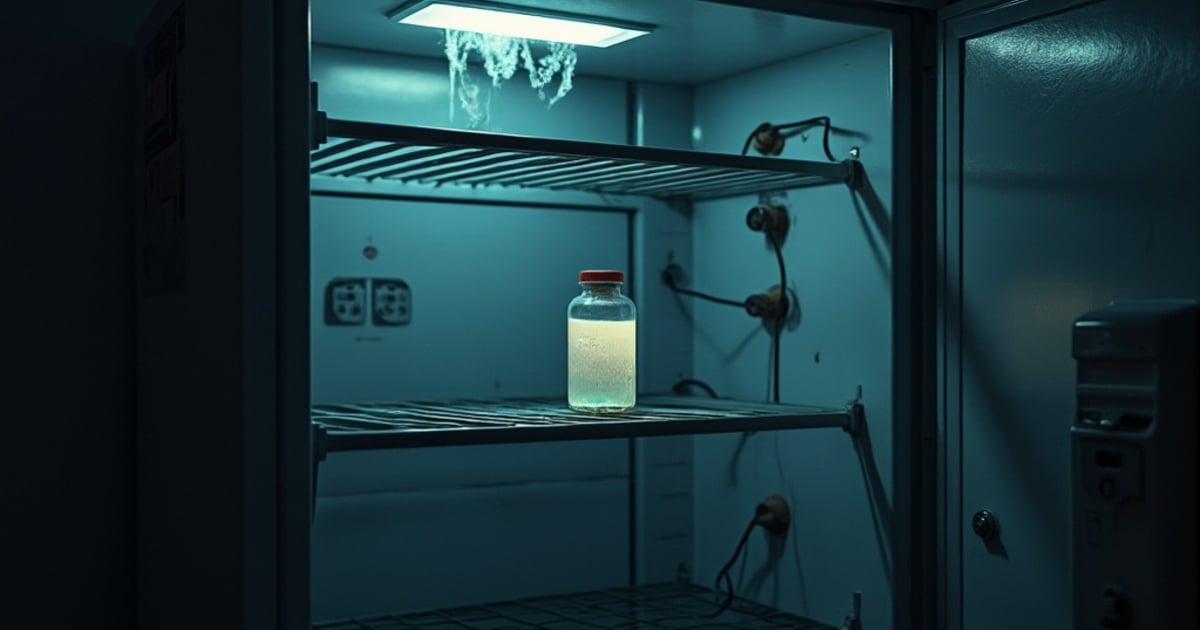
A 13-year-old girl has died amid the blackouts in Havana after her family administered a dose of insulin. As of today, it is unknown whether the medication suffered from a lack of refrigeration due to the power cuts experienced by all Cubans or if it belonged to a damaged batch.
"We don't know exactly what happened. We believe the batch was in poor condition. She was due for insulin at night, and as soon as she took it, the girl collapsed. They had been without electricity for days," the source added.
"It was a new vial, it wasn't one that was opened. That insulin should have been refrigerated. The girl passed away. She had been diabetic since she was two years old," he insisted.
This source, contacted by phone by CiberCuba, confirms the information shared by a Facebook user who goes by the name "Mandarina Choc Choc" and claims to be a friend of the family of the deceased girl. The minor was laid to rest, she claims, "in a hurry because there were no means for a proper wake and it could not be prepared."
According to this person who shared the WhatsApp messages on their Facebook profile, a relative of the minor told them: "Estela, they have killed the girl."
The recipient of the message adds that this supposed claim from the family is true because the girl was diabetic and due to the massive blackouts that started in Cuba last Friday, "they were unable to properly refrigerate the insulin and when she took the night dose, it was in poor condition due to the change in temperature, the heat, or whatever, and the girl died."
"The doctors, despite the pressures, wrote it that way on the death certificate," insists the Facebook post.
"I have no words. There is no comfort. There is no way to fix this. How many cases are there? It is impossible not to feel hatred and a desire for revenge," she notes.
In a screenshot of the messages shared by this person on Facebook, it can be read that a supposed relative of the deceased girl responds: "I can't talk right now. I will write to you calmly when I have the strength. The insulin spoiled due to lack of refrigeration. We had been without electricity for days. This is a nightmare. I don't want to keep living."
Ana Peinado, a Spanish pediatrician from the Virgen de las Nieves maternal and child hospital in Granada (Andalusia), clarified in statements to CiberCuba that "insulin that is not refrigerated loses its effect and the patient can die within hours if not taken to a hospital. This happens because the medication has no effect, leading to progressive deterioration, resulting in a serious complication of diabetes called ketoacidosis," she pointed out.
In the same vein, the Cuban doctor based in Spain, Lucio Enríquez Nodarse, warned in a video shared on Facebook about the danger faced by patients who need insulin to survive and do not have the medication on hand or it has spoiled due to power outages. "Type 1 diabetic patients who do not have insulin, die," he emphasized firmly.
Cubans have lived through hell since the massive blackout on the Island on Friday, October 18, 2024, due to the shutdown of the Antonio Guiteras thermoelectric plant. The government of Miguel Díaz-Canel attributed it, as usual, to the U.S. embargo, the shortage of fuel due to lack of money to purchase it, and the fact that the plants supplying Cuba are obsolete. However, it did not mention whether anyone would take political responsibility for what happened.
Since then, productive activity and basic services such as Education have remained paralyzed on the Island. After days without electricity, pot-banging protests have been reported in various parts of the country, to which the Cuban leader responded with a threat on television, warning that he would not allow this type of peaceful demonstration.
What do you think?
COMMENTFiled under: